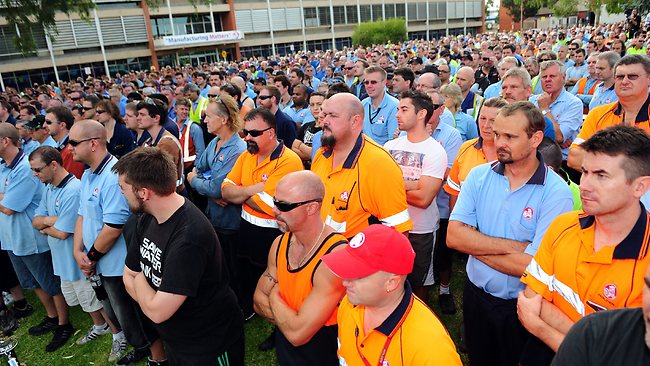The end of the car-maker General Motors Holden came in February, not with a bang or burn out, but with a whimper. But there was never a serious fight for the one thing that could have saved the jobs—nationalisation.
After Holden’s 2013 decision to close its manufacturing plants, it still had 600 workers in its design team and 200 in after sales customer service. Now those jobs will go.
The last 800 jobs will go without any fight from the unions or any effort at intervention by the Morrison government.
Morrison was disingenuous, “I am angry, like I think many Australians would be. Australian taxpayers put millions into this multinational company. They let the brand just wither away on their watch. Now they are leaving it behind.”
The same is true of the Coalition government. Since 2013 under leaders Tony Abbott, Malcolm Turnbull and Scott Morrison, they have watched as Holden ended car production and refused to act.
The one thing Morrison is right about is the taxes and subsidies Australian workers paid over the years to keep Holden going.
In just the 12 years prior to its 2013 closure, GMH received an average government subsidy of $153 million a year. Right from 1948, when the first FX Holden came off the assembly line, Holden received government assistance.
Labor criticised Morrison, as it did in 2013, yet has never produced any plan to save the jobs.
Finally, the union that represents the workers—the AMWU—has done nothing to fight for jobs or nationalisation. Dave Smith, the assistant national secretary, could only “condemn the lack of Government support for Australian manufacturing.” How about a union fight for jobs and nationalisation?
The 3000 former Holden manufacturing workers have struggled to find secure, well-paying jobs since 2013. An AMWU study found less than 5 per cent of members laid off by at Adelaide’s Elizabeth plant had new jobs with the same or better conditions. Many had some work but two thirds were in part-time, casual or contract jobs. Those over 40 struggled to gain any sort of work.
“We were speaking to members that were getting five hours one week and then 25 the next, and then maybe eight the week after that,” union official Scott Batchelor said.
There simply has been no “just transition” for Holden workers. This stands as a warning in shutting down other industries like coal.
Nationalising Holden could have been the beginning of a green manufacturing sector—building public transport and renewable energy infrastructure. We have to make sure that workers aren’t simply thrown on the scrap heap in future.
By Tom Orsag






